Healthy teeth are crucial for dogs’ overall well-being. Just like humans, dogs require proper dental care to prevent issues like gum disease, tooth decay, and bad breath. Yet, many pet owners overlook this aspect of their furry friend’s health. In this comprehensive guide, we’ll delve into expert techniques for maintaining your dog’s dental health, ensuring a lifetime of happy smiles and wagging tails.
Contents Overview
Discover the secret to a wag-worthy smile! Uncover the importance of dental health for your furry friend with our guide to canine oral care. From preventing pesky plaque to ensuring fresh breath, learn expert techniques to keep your pup’s teeth sparkling and their tail wagging. Dive into the world of doggy dental hygiene and unleash a lifetime of healthy smiles.
Why Dental Health Matters for Dogs
Dental health is vital for dogs, impacting their overall well-being in numerous ways. Here’s why it matters:
1- Prevents Gum Disease
Just like humans, dogs can suffer from gum disease if plaque and tartar buildup aren’t addressed.
Gum disease can lead to inflammation, pain, and even tooth loss if left untreated.
2- Maintains Oral Comfort
Healthy teeth are essential for comfortable eating and chewing.
Dental issues can cause discomfort, leading to reluctance to eat or chew on toys.
3- Averts Tooth Decay
Tooth decay is not uncommon in dogs, especially if their diet includes sugary treats or lacks proper dental care.
Decay can lead to abscesses, infections, and severe pain.
4- Prevents Bad Breath
Bad breath (halitosis) is often a sign of dental problems in dogs, such as gum disease or tooth decay.
Regular dental care helps combat bad breath, keeping your furry friend’s kisses fresh.
5- Protects Vital Organs
Poor dental health can contribute to systemic infections that affect vital organs like the heart, liver, and kidneys.
Bacteria from the mouth can enter the bloodstream, causing serious health issues.
6- Enhances Overall Health
Studies have shown links between oral health and overall health in dogs.
Maintaining healthy teeth and gums may reduce the risk of systemic diseases and improve your dog’s quality of life.
Signs of Dental Problems in Dogs
Identifying dental problems in dogs early is crucial for their overall health and well-being. Here are some common signs to watch for:
1- Bad Breath
Persistent foul odor from your dog’s mouth, often indicating bacterial buildup and potential dental issues.
2- Excessive Drooling
Drooling more than usual can be a sign of discomfort or pain related to dental problems.
3- Discolored or Loose Teeth
Discoloration or looseness in the teeth may indicate decay, infection, or trauma.
4- Bleeding Gums
Gums that bleed easily, especially during chewing or brushing, could signal gum disease or other oral health issues.
5- Difficulty Chewing or Eating
If your dog shows reluctance to eat, chews only on one side of the mouth, or drops food while eating, it may indicate dental pain or discomfort.
6- Pawing at the Mouth
Dogs experiencing oral discomfort may paw at their mouths or rub their faces against surfaces to alleviate pain.
7- Changes in Eating Habits
Loss of appetite, favoring soft foods over hard ones, or difficulty swallowing can all be signs of dental problems.
8- Reluctance to Play with Toys
Dogs with dental issues may avoid playing with toys, particularly hard or chewy ones, due to pain or discomfort.
9- Swelling or Lumps
Swelling or lumps on the face, particularly around the mouth or jaw, may indicate abscesses or other serious dental issues.
10- Behavioral Changes
Uncharacteristic aggression, irritability, or withdrawal may be a response to dental pain or discomfort.
Expert Techniques for Healthy Teeth
Maintaining your dog’s dental health requires a multifaceted approach that combines home care techniques with professional intervention. Here are expert techniques to ensure your canine companion enjoys healthy teeth and gums:
1- Regular Brushing
Use Dog-specific Toothpaste: Human toothpaste can be harmful to dogs, so use toothpaste formulated specifically for canines.
Soft-Bristled Toothbrush: Use a soft-bristled toothbrush or finger brush designed for dogs.
Start Slow: Introduce brushing gradually, starting with short sessions to acclimate your dog to the process.
Focus on Outer Surfaces: Concentrate on the outer surfaces of the teeth, where plaque and tartar tend to accumulate.
Gentle Circular Motions: Use gentle circular motions to clean the teeth and massage the gums.
2- Dental Chews and Toys
Choose Dental Chews: Opt for dental chews that are designed to promote oral health by reducing plaque and tartar buildup.
Select Appropriate Toys: Choose toys that encourage chewing, as this helps naturally clean teeth and massage gums.
Avoid Hard Toys: Avoid hard toys that could potentially damage teeth or cause injury.
3- Healthy Diet
Balanced Nutrition: Provide a balanced diet that supports dental health, including dental-specific kibble or treats.
Limit Sugary Treats: Minimize sugary treats and table scraps, as these can contribute to plaque formation and dental issues.
4- Routine Veterinary Checkups
Schedule Regular Exams: Visit your veterinarian regularly for dental checkups and professional cleanings.
Professional Cleaning: Professional cleanings may be necessary to remove stubborn plaque and tartar buildup.
5- Water Additives and Dental Sprays
Consider Supplements: Water additives or dental sprays may help control bacteria and freshen your breath.
Consult Your Veterinarian
Consult with your veterinarian before using any dental supplements to ensure they are safe and effective for your dog.
Tips for Successful Dental Care
- Consistency is Key: Establish a consistent dental care routine and stick to it.
- Use Positive Reinforcement: Use plenty of praise and rewards to make dental care a positive experience for your dog.
- Start Early: Introduce dental care when your dog is young to help them become accustomed to the process.
- Monitor Changes: Keep an eye on your dog’s oral health and consult your veterinarian if you notice any changes or abnormalities.
Bottom Line
Your dog’s dental health is not something to be overlooked. By implementing expert techniques like regular brushing, providing dental chews, maintaining a healthy diet, and scheduling routine checkups, you can ensure your furry companion enjoys a lifetime of healthy teeth and gums. Remember, a little effort in dental care today can prevent significant problems down the road, keeping your dog smiling and thriving for years to come.
Key Takeaways
- Importance of Dental Health: Understand why dental health is crucial for dogs’ overall well-being, impacting their comfort, health, and longevity.
- Signs of Dental Problems: Learn to recognize signs of dental issues in dogs, including bad breath, excessive drooling, and changes in eating habits.
- Expert Techniques: Discover expert techniques for maintaining your dog’s dental health, including regular brushing, providing dental chews, and scheduling routine veterinary checkups.
- Tips for Successful Dental Care: Gain practical tips for successful dental care, such as establishing a routine, using positive reinforcement, and choosing the right tools and products.
- Consistency and Monitoring: Understand the importance of consistency in dental care routines and regular monitoring of your dog’s oral health for early detection of any issues.

Jennifer (Fultz) Redmon, DVM, is the veterinarian owner and founder of Pet Dental USA. With expertise in veterinary medicine, anesthesiology, dentistry, and animal welfare, Jennifer is committed to providing top-notch healthcare services, ensuring pets' dental health for a happy and thriving life.
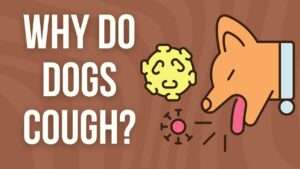
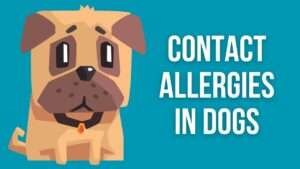
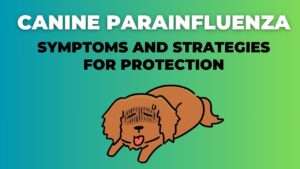




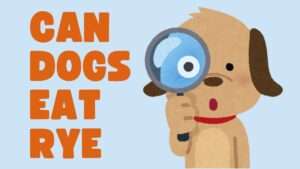
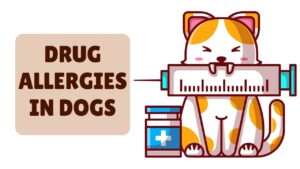


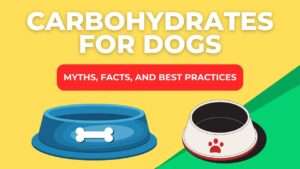




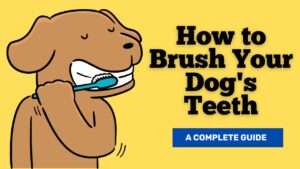
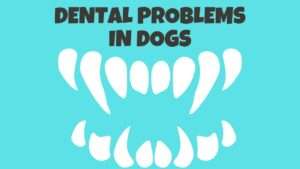
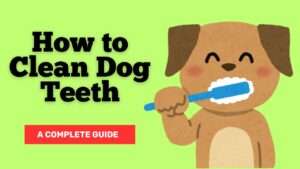







+ There are no comments
Add yours